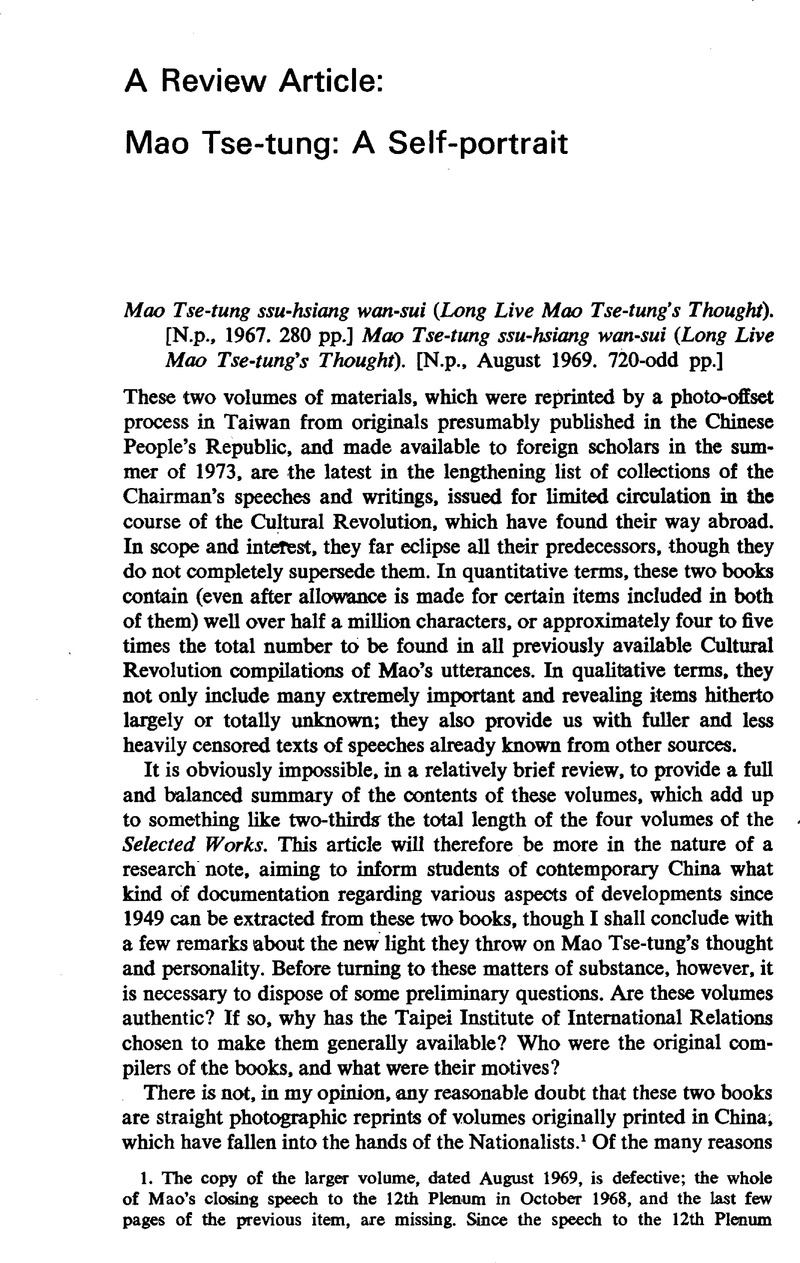Article contents
Mao Tse-tung: A Self-portrait
Published online by Cambridge University Press: 17 February 2009
Abstract

- Type
- Review Articles
- Information
- Copyright
- Copyright © The China Quarterly 1974
References
1. The copy of the larger volume, dated August 1969, is defective; the whole of Mao's closing speech to the 12th Plenum in October 1968, and the last few pages of the previous item, are missing. Since the speech to the 12th Plenum begins, according to the table of contents, on p. 721,1 have indicated above “720. odd pp.” There are 716 pages in the Taiwan reprint.
2. Issues and Studies (Taipei, ), X (3), 12 1973, pp. 86–102Google Scholar.
3. Baum, R. and Teiwes, F., Ssu-ch'ing (Berkeley: Center for Chinese Studies, 1968). p. 52Google Scholar.
4. Wen-Ian, Fan, “Li-shih yen-chiu pi-hsti hou chin po ku” (“In historical research we must stress the present and slight the past”), Jen-min jih-pao, 28 04 1958Google Scholar.
5. This expression (i ku fei chin che tsu) occurs in the biography of Chin Shihhuang in the Shih chi, as part of the proposal for the celebrated edict, approved by the emperor in 213 B.C., which also comprised the burning of the books, Shih chi, chiian For a translation of the passage, see Chavannes, E, Les mémoires historiques de Se-ma Ts'ien (Paris: Adrien-Maisonneuve, 1967), Vol. II, pp. 169–74Google Scholar.
6. Mao Tse-tung Unrehearsed. Talks and Letters 1956–1971. Transl. by Chinnery, John and Tieyun, . Ed. with an introduction by Schram, Stuart R.. (Harmonds-worth: Penguin; New York: Pantheon, forthcoming – Spring 1974.)Google Scholar
7. I have discussed this point at some length in the introduction to Mao Tse-tung Unrehearsed.
- 2
- Cited by


